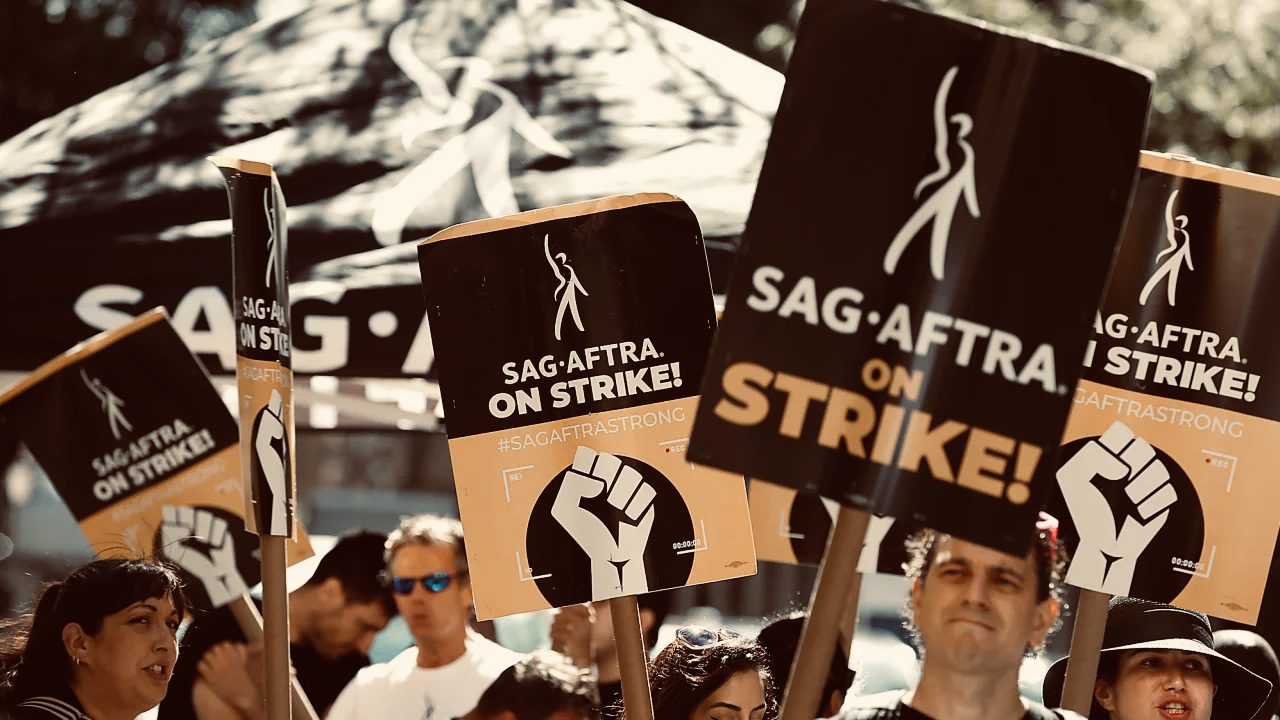It took 148 days for the 11,500 members of the Writer’s Guild of America (WGA) to secure what is noted by the union as an “exceptional” deal with the Alliance of Motion Picture and Television Producers (AMPTP). However, such a deal has yet to be made with the artists in front of the camera. The Screen Actors Guild – American Federation of Television and Radio Artists (SAG-AFTRA) went on strike shortly after the writers against the AMPTP to fight for similar issues, notably protections against A.I and fair pay from streaming networks.
One would think that with the WGA having reached what looks to be a monumental deal, that things would move with alacrity with the producers and SAG-AFTRA. Unfortunately, the opposite seems to be true as negotiations haven’t gone as smoothly between the two. The union even posted a couple weeks ago saying, “It is with profound disappointment that we report the industry CEOs have walked away from the bargaining table after refusing to counter our latest offer. We have negotiated with them in good faith, despite the fact that last week they presented an offer that was, shockingly, worth less than they proposed before the strike began.”
Apparently the reasoning for the walk-out was because one of the items that executive members of SAG-AFTRA wanted to propose as a part of the negotiation pertaining to streaming was for cast members to be paid a portion of the revenue as a bonus. It was an ask that, according to the CEO’s of said streaming networks, “would cost more than $800 million per year, which would create an untenable economic burden.” Curious that paying executives multiple millions per year for effectively doing nothing is very much “tenable,” but I digress.

The latest developments see AMPTP return with a new proposed contract, which they submitted over the weekend and expected a reply from the union members by Sunday. However, SAG-AFTRA have come out and stated that they will be taking all of Monday (today) to thoroughly talk over the contract. As reported by Deadline, rumours around town — meaning Hollywood — are suggesting that this may be the final chance for a settlement to be made in the hopes to salvage the last couple months of film and television production. If the offer is rejected by the union, then it’s likely that further negotiations will be halted until 2024, meaning all film and T.V production will be closed for the remainder of the year.
This would further the impact the strikes have already had on California’s economy. As Deadline continues in their report, the state’s economy has lost an estimated $6.5 billion, with more than 45,000 jobs being lost since this past spring. Though, for as unfortunate as that is — particularly the loss of jobs — the impact that the ongoing trends of A.I and economies of content streaming would have had on the industry on a creator level would have been devastating if not for these strikes.

The fight from scribes and thespians alike could save tens of thousands of jobs that CEOs would have had no problem replacing with A.I. As such, limitations on the technology need to be placed now. A cursory look into how the technology has already made its way into Hollywood, from relatively innocuous uses of de-aging, to more concerning ones that have led companies like Netflix hiring an “A.I Product Manager,” should tell you the potential risks to human artists this technology could have.
Furthermore, it’s no secret that content streaming has turned a once upper-middle class job with a secure salary into a gig that sees writers of the most popular shows struggling to pay rent. Fighting for proper pay and revenue sharing for shows that bring in millions upon millions is not too much of an ask. So whether it happens this week, or we continue to bleed until 2024, we need to make sure the creators, in this case the actors, are protected and compensated fairly amidst the rapidly changing seas of modern-day production.

